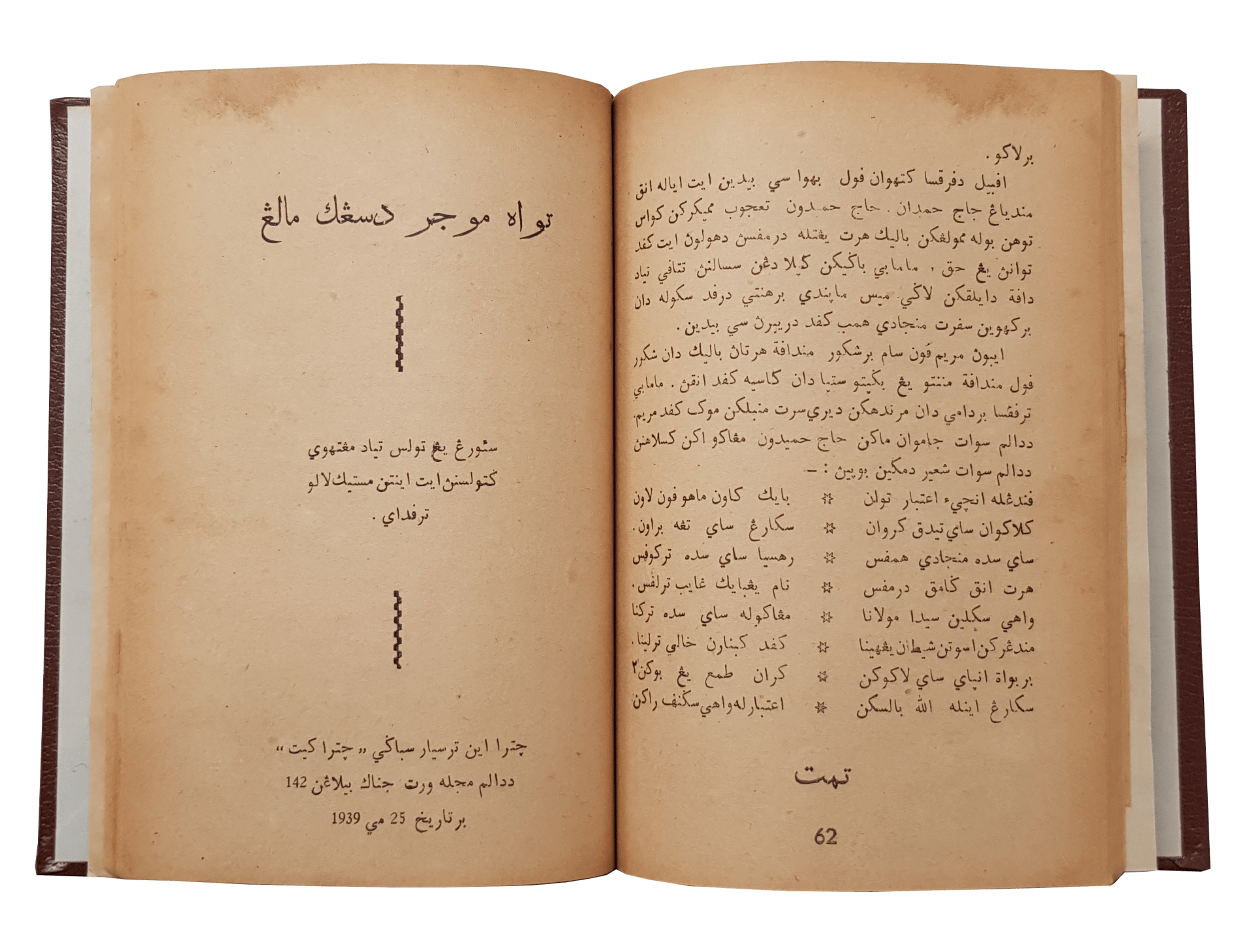Pesaka Kajai (Kajai’s Legacy) is an anthology of short stories penned by Abdul Rahim Kajai. These short stories first appeared in Warta Jenaka, a weekly periodical published in Singapore in the 1930s. They covered various aspects of life with shorts on Hutang Budi Dibawa Mati (good deeds cannot be repaid) and Hilang Takut Timbul Berani (don’t be afraid, be brave). This anthology was published in 1949 by Qalam, a Singaporean publishing company once located at 25F Kampong Java Road.
Abdul Rahim Kajai (1894 – 1943) was a journalist and editor. He worked for the newspaper Saudara and was appointed editor in 1930. In 1931 he became editor for Majlis until 1935, before he started writing for Warta Malaya, the leading independent Malay daily of the 1930s. Warta Jenaka, in which these short stories were published, was a weekly offshoot of Warta Malaya. In 1939 Kajai became the chief editor of Utusan Melayu – the first Malay-owned newspaper – and later founded two more publications – Utusan Zaman and Mastika. During the Japanese occupation, he was the chief editor for Berita Malai, which was sponsored by the Japanese authorities. He died of heart failure in December 1943.
Kajai’s writings sought to “uplift and unify the nationalistic spirit of the Malays”. In Pesaka Kajai‘s preface stands a Malay idiom:
harimau mati meninggalkan belang (the dead tiger leaves its stripes)
ajah mati meninggalkan gading (the dead elephant leaves its ivory)
manusia mati meninggalkan nama (the dead human leaves its name)
This essentially encapsulates the idea that a person will be remembered by his deeds after his demise. The editors of Qalam believed that Kajai’s ideas in his stories should live on.



A valueable collection of Malay literature.